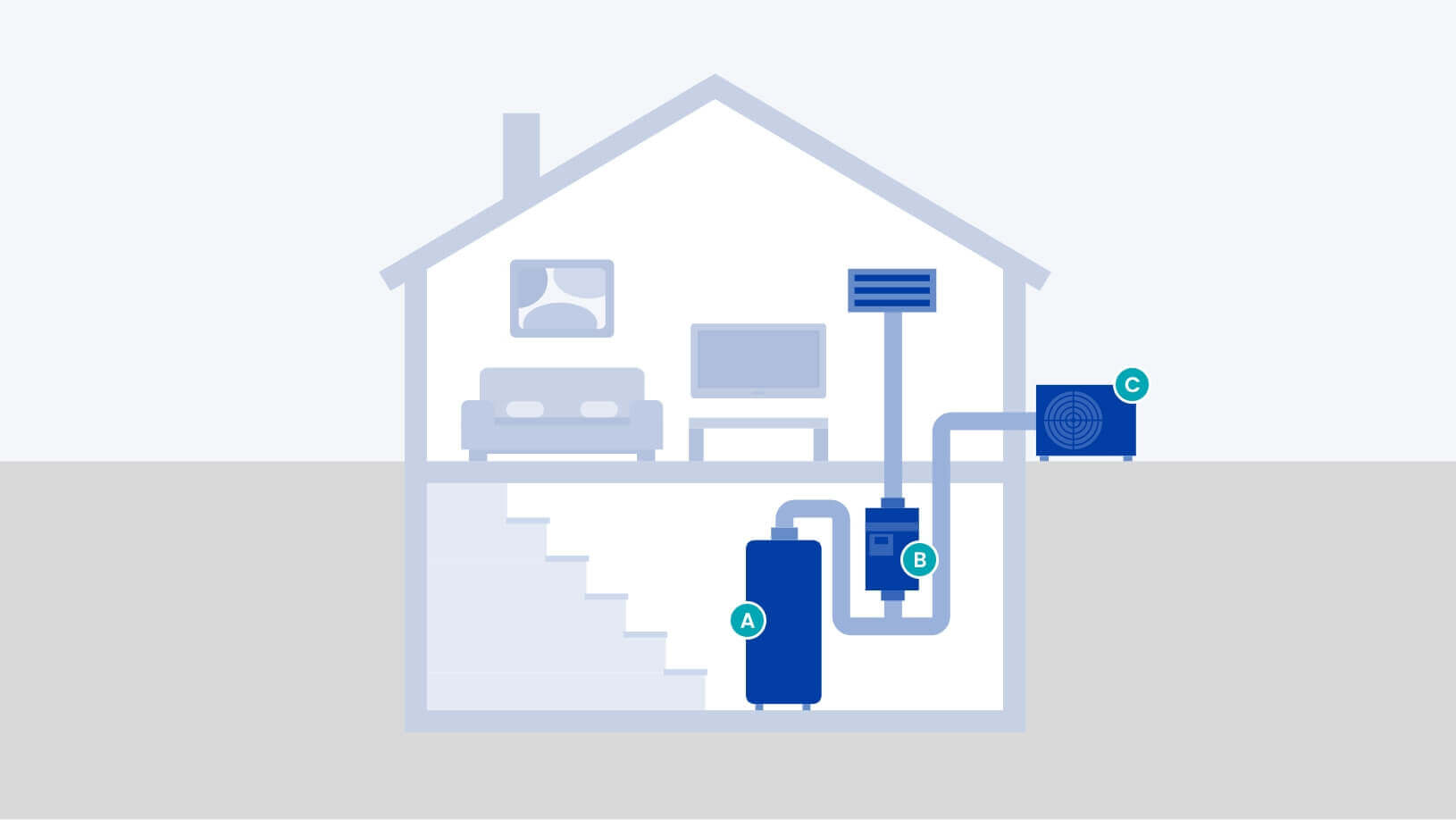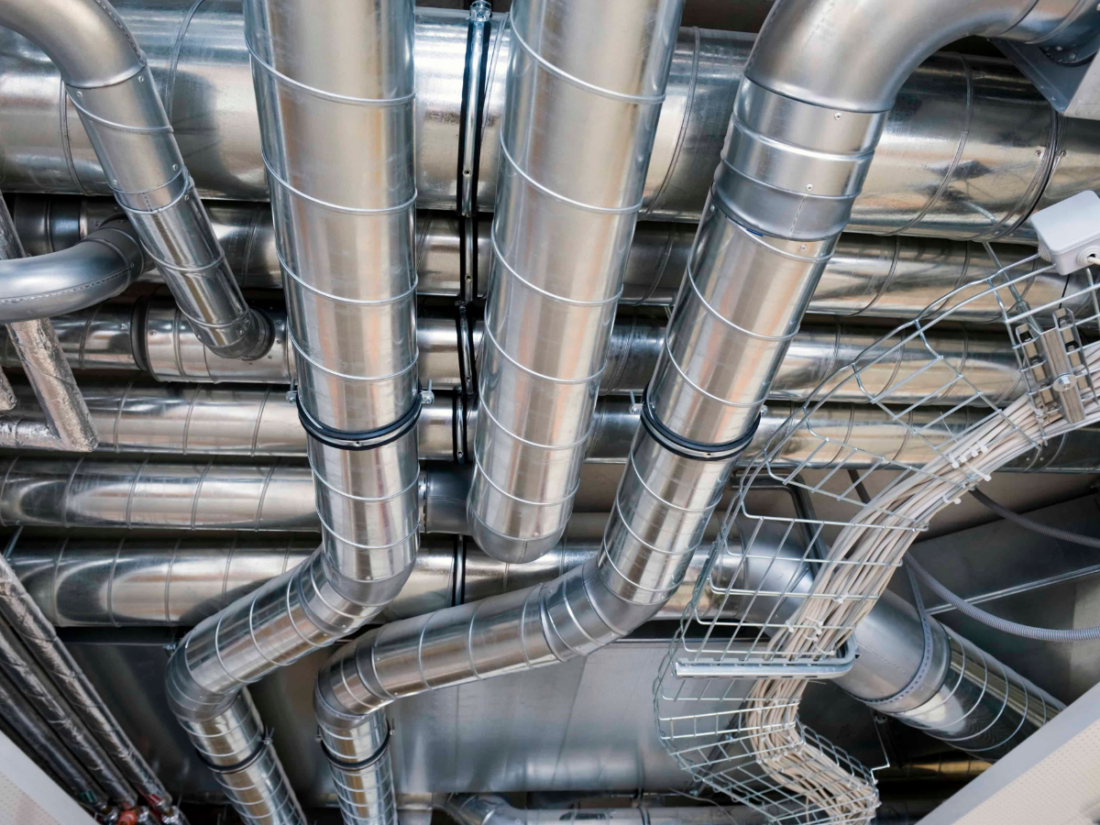See how HVAC experts provide cost-effective comfort solutions for businesses
Wiki Article
Discovering the Essential Elements of an Efficient A/c System
An effective HVAC system is built on numerous important elements that operate in harmony. Each component, from the thermostat to the ductwork, plays a crucial role in maintaining convenience and energy effectiveness. Comprehending these components is important for maximizing performance and boosting indoor air quality. As one checks out these components, the complex relationships between them expose insights right into improving total system efficiency. What particular variables contribute most to this effectiveness?The Function of the Thermostat in A/c Performance

Often overlooked, the thermostat plays an important role in the effectiveness of Cooling and heating systems. This small device acts as the key nerve center, regulating temperature level settings and making certain ideal comfort within an area. By accurately picking up the ambient temperature, the thermostat interacts with the air, home heating, and ventilation conditioning systems to keep the desired climate
An effective thermostat reduces power intake by triggering the heating and cooling system just when needed, therefore preventing extreme heating or air conditioning. Modern programmable and wise thermostats boost this efficiency even more by enabling customers to set timetables and from another location adjust settings, adapting to everyday regimens.
The positioning of the thermostat is vital; inappropriate place can lead to imprecise temperature level analyses, resulting in inefficient procedure. Generally, a well-functioning thermostat not just enhances comfort however likewise adds noticeably to power savings and the long life of the HVAC system.
Recognizing the Value of Air Filters
Air filters serve an important function in a/c systems by ensuring that the air flowing within an area remains healthy and clean. These filters catch dirt, irritants, and various other pollutants, stopping them from being recirculated throughout the setting. By capturing these fragments, air filters add to improved indoor air quality, which can greatly benefit occupants' wellness, particularly those with allergies or breathing problems.In addition, keeping clean air filters boosts the performance of a/c systems. Clogged up filters can restrict air movement, causing the system to function more challenging to maintain wanted temperature levels, resulting in raised power consumption and higher energy bills. Consistently replacing or cleansing filters is an important upkeep action that can extend the life-span of heating and cooling devices. Eventually, recognizing the relevance of air filters enables house owners and building managers to take aggressive measures to ensure a well-functioning, reliable HVAC system that advertises a safe and comfy indoor atmosphere.

The Functionality of the Heater and Warm Pump
Furnaces and heatpump are vital components of heating and cooling systems, in charge of supplying warmth throughout cooler months. Furnaces run by heating air through combustion or electric resistance, then dispersing it throughout the home using ducts. They commonly use fast home heating and can be fueled by natural gas, electricity, or oil, depending on the system type.On the other hand, heatpump transfer heat instead of create it. They draw out warm from the outdoors air or ground, also in reduced temperature levels, and transfer it inside your home. HVAC experts. This double functionality permits heatpump to also supply cooling in warmer months, making them versatile options for year-round climate control
Both systems require proper upkeep to guarantee efficiency and longevity. While heaters master extreme cold, heatpump can be advantageous in moderate environments. Comprehending their distinct capabilities help home owners in picking one of the most suitable alternative for their home heating needs.
Checking Out the Air Conditioning System
The cooling system is a vital part of a/c systems, readily available in various types to suit different needs. Comprehending the performance ratings of these devices is necessary for making informed options about energy consumption and expense. This section will discover the varied kinds of ac unit and make clear just how efficiency rankings influence performance.Sorts Of Air Conditioners
While different elements affect the option of air conditioning systems, comprehending the different types available is crucial for property owners and building managers alike. Central air conditioning conditioners are created to cool whole homes or buildings, utilizing a network of air ducts for air movement. Home window devices use an even more localized remedy, perfect for small areas or solitary areas. Mobile a/c offer adaptability, permitting customers to move the system as needed. Ductless mini-split systems are another option, combining the efficiency of main systems with the benefit of zoning, as they need no ductwork. Geothermal systems harness the planet's temperature for energy-efficient cooling. Each kind includes unique advantages, making educated choices important for effective environment control.
Effectiveness Rankings Clarified
Understanding effectiveness ratings is vital for Get More Info choosing the appropriate cooling unit, as these metrics give understanding into the system's efficiency and power usage. The most usual rating for air conditioning unit is the Seasonal Power Performance Ratio (SEER), which measures the cooling output during a normal cooling period divided by the complete electric energy input. A higher SEER suggests much better efficiency. Additionally, the Energy Efficiency Proportion (EER) is utilized for measuring performance under details conditions. One more vital metric is the Power Celebrity accreditation, which signifies that a device fulfills stringent power performance guidelines. By reviewing these rankings, consumers can make informed choices that not just optimize convenience however also decrease power expenses and environmental influence.The Relevance of Ductwork and Air flow
Reliable ductwork design and air movement administration play critical roles in the total performance and efficiency of heating and cooling systems. Appropriate ductwork warranties that conditioned air is dispersed equally throughout a space, decreasing temperature level fluctuations and enhancing comfort. Properly designed air ducts lessen resistance to air movement, reducing the workload on HVAC devices and eventually reducing energy consumption.Air flow management includes tactically positioning vents and registers to boost the flow of air. This stops usual issues such as chilly or warm spots, which can take place when air flow is blocked or improperly balanced. In addition, the right air duct products and insulation can further improve effectiveness by decreasing warm loss or gain throughout air transportation.
A reliable ductwork system not just adds to energy financial savings yet can additionally lengthen the life-span of heating and cooling tools by reducing unnecessary stress (HVAC experts). Comprehending the value of ductwork and air movement is important for accomplishing peak Heating and cooling system efficiency.
Routine Upkeep Practices to Improve Efficiency
Routine maintenance techniques are important for making certain peak performance of heating and cooling systems. These methods include regular evaluations, cleansing, and necessary repair work to maintain the system running successfully. Frequently changing air filters is important, as stopped up filters can block airflow and lower performance. Furthermore, professionals need to inspect and tidy evaporator and condenser coils to avoid overheating and energy wastage.Annual specialist inspections are additionally suggested, as qualified service technicians can identify potential problems prior to they escalate. Oiling moving parts lessens wear and tear, adding to a much longer life expectancy for the system. In addition, making certain that the thermostat operates correctly aids in maintaining perfect temperature control.

Regularly Asked Questions
Just how Commonly Should I Replace My Thermostat?
Thermostats should normally be changed every 5 to one decade, relying on usage and innovation developments. Routine checks are advisable to ensure peak efficiency, particularly if experiencing irregular temperature control or boosted energy expenses.What Dimension Air Filter Is Finest for My HVAC System?
The very best size air filter for a HVAC system differs by device layout. Normally, it's important to consult the proprietor's manual or examine the existing filter dimensions to guarantee peak efficiency and air top quality.Can I Mount a Heatpump Myself?
Installing a heat pump independently is feasible for proficient people, however it requires understanding of electrical systems and neighborhood codes. Working with an expert is recommended to guarantee appropriate installation and ideal system performance.Exactly how Do I Know if My Ductwork Is Efficient?
To figure out ductwork performance, one ought to inspect for leakages, step air movement at vents, inspect insulation high quality, and assess temperature level distinctions in between supply and return air ducts. Professional evaluations can provide thorough insights into general performance.What Are Indications My A/c Requirements Immediate Upkeep?
Signs that an a/c system needs instant upkeep consist of uncommon sounds, inconsistent temperatures, raised additional resources power expenses, undesirable smells, and frequent cycling. Dealing with these concerns promptly can prevent additional damages and assurance optimal system efficiency.Air filters serve an essential feature in Heating and cooling systems by guaranteeing that the air flowing within an area remains healthy and balanced and clean. Furthermore, keeping clean air filters enhances the performance of HVAC systems. Ductless mini-split systems are one more option, combining the performance of main systems with the ease of zoning, as they call for no ductwork. Understanding performance scores is essential for selecting the right air conditioning device, as over at this website these metrics give understanding right into the system's efficiency and energy consumption. The ideal size air filter for a Heating and cooling system varies by device design.
Report this wiki page